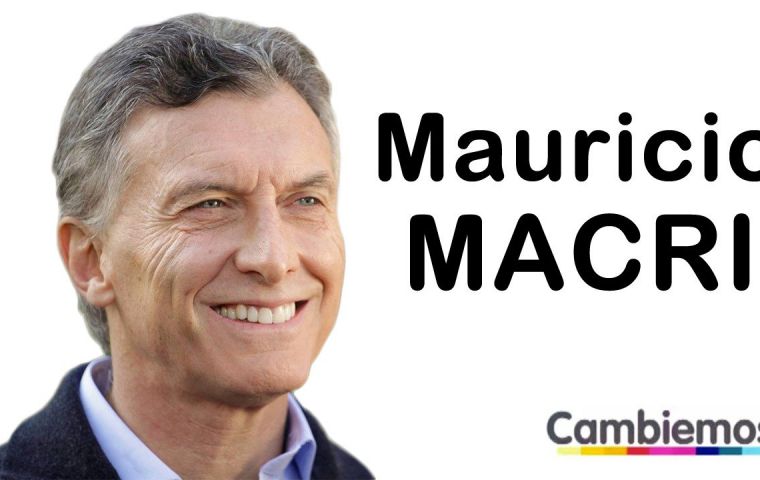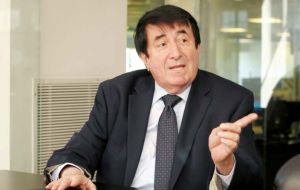MercoPress. South Atlantic News Agency
“Hard to visualize a scenario” with Macri not running for reelection in 2019
 Macri's approval ratings are running at 44%, according to some polls, but his reforms have been unpopular with Argentina's powerful unions
Macri's approval ratings are running at 44%, according to some polls, but his reforms have been unpopular with Argentina's powerful unions  Jaime Duran Barba, considered the political guru behind Macri's surprise win in 2015, said he “did not see a scenario” where Macri was not a candidate.
Jaime Duran Barba, considered the political guru behind Macri's surprise win in 2015, said he “did not see a scenario” where Macri was not a candidate.  ”Our numbers always predicted a tie (with Cristina Fernandez). I said hopefully she wins by a bit because that way the people will see a need to do something.”
”Our numbers always predicted a tie (with Cristina Fernandez). I said hopefully she wins by a bit because that way the people will see a need to do something.” Argentine President Mauricio Macri is almost certain to run for re-election in 2019, his top campaign adviser said, even as he acknowledged that the leader's market-friendly reforms were unpopular among many poor Argentines.
Jaime Duran Barba, an Ecuadorian who has run campaigns across Latin America and is considered the political guru behind Macri's surprise win in 2015, said he “did not see a scenario” where Macri was not a candidate.
Liberal Macri has not said if he will seek re-election, but if the October midterm elections confirm August primary projections, and the economy and confidence continue to pick up, it's hard not to visualize Macri running again in 2019.
And when the time comes for Macri to move on, Duran Barba said that there were “important, prepared people” who could dispute the succession. He pointed to city of Buenos Aires mayor Horacio Rodriguez Larreta, Macri's Cabinet Chief Marcos Pena, and Maria Eugenia Vidal, the governor of Buenos Aires and the most popular politician in Argentina, according to most polls.
But Macri's “Let's Change” coalition must first post a strong performance in October's legislative elections, where one third of the Senate and half of the lower house seats are up for re-election.
“Mauricio's strategy has always been: in the first two years we can start a transformation, but the point at which we will know if it is possible or not to change Argentina is the mid-term election,” said Duran Barba, who has advised Macri since he first ran for political office in 2003.
Despite recovering economic indicators, the October 22 vote is being closely watched by investors because Macri's political nemesis and populist two-term predecessor, Cristina Fernandez, is vying for a Senate seat in Buenos Aires province, home to 40% of voters. She is believed to be testing the waters for a potential bid for the presidency in 2019.
Fernandez managed a narrow win over Macri ally Esteban Bullrich in the non-binding primary vote in August, a scenario Duran Barba said was ideal for motivating voters to rally around Bullrich against a divided opposition.
”It was the best option, our numbers always predicted a tie (with Fernandez). I said hopefully she wins by a bit because that way the people will see a need to do something.“
Macri's approval ratings are running at 44%, according to some polls, but his reforms have been unpopular with Argentina's powerful unions and triggered anti-Macri protests.
Argentina's economy came out of recession in the second half of last year, later than expected. Duran Barba acknowledged that Macri's austerity measures had particularly hurt poor slum-dwellers in Buenos Aires province.
”They raised (energy) tariffs, and that was unpopular. We hoped there would be fast results for the economy and that there would be investment. There wasn't,” Duran Barba said. Besides Brazil which together with China are Argentina's main trade partners is undergoing a three-year recession, in the midst of historic corruption scandals and public opinion rejection of the political system, and lack of confidence.




Top Comments
Disclaimer & comment rulesCommenting for this story is now closed.
If you have a Facebook account, become a fan and comment on our Facebook Page!